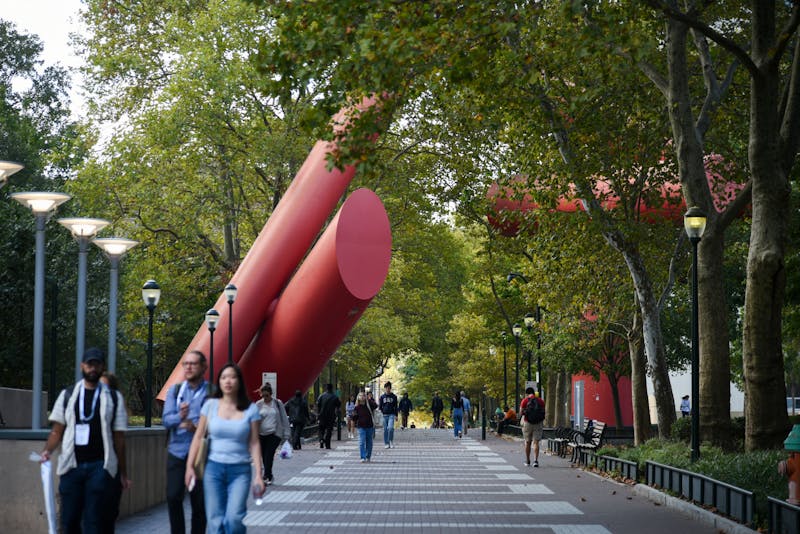
A new door locking system will allow Penn students to enter their rooms without traditional brass keys by swiping their PennCard and entering their four digit passcode.
Credit: Julio Sosa , Julio SosaIn a resolution passed by the Board of Trustees during a meeting on May 12, approximately $7.85 million has been allocated for the replacement of 6,000 brass key locks in residential buildings around the University with an electronic system.
The college houses affected include Kings Court English, Stouffer, the Quadrangle, DuBois, Harrison, Harnwell and Rodin College Houses. Students will now swipe with their PennCards at the lobby and scan the card again at their suite, finally entering their unique four-digit code to access their rooms.
This comes two years after a pilot test in Gregory College House. Although Gregory has had electronic locks for about 20 years, a new electronic lock mechanism was put into place two years ago after the original was found to have a security flaw, according to Director of Residential Services John Eckman.
After the discovery of the flaw, a team was sent by Penn to Princeton University, to investigate its usage of electronic locks in residential housing. Princeton had just transitioned from the traditional brass key lock system to an electronic one designed by SALTO Systems, which is the model now also installed in Gregory.
According to Eckman, Director of Communications and External Relations Barbara Lea-Kruger and Senior Associate Director of Building Operations Derek Hunsberger, new electronic locks will be placed in front of each suite in the aforementioned residential colleges.
In some rooms, personal locks will also be placed in front of each bedroom. Offices, housekeeping facilities and public spaces — such as lounges — located within college houses will all be secured with the new electronic lock system as well.
The New College House, currently under construction and set to open in the fall of 2016, has already been upgraded to the more modern electronic lock system, and Hill College House, which has been under renovation since the 2016 Commencement ceremony, will also be upgraded.
The new system will also require a review in fees with regard to lost PennCards, as there no longer will be a $200 fee to replace the room lock if a student loses their key; the administration will meet with students on the Residential Services Advisory Board in order to determine the new fees for lock-outs and lost PennCards.
According to Eckman, the new system promises to be more flexible, safer and cheaper for students. If a PennCard is misplaced, it can instantly be deactivated to prevent other users from entering rooms. If the card is left at home, the University may also issue a temporary card for the student to use while their PennCard is in transit.
The entire campus will have to transition onto contactless chip-based PennCards — which are used by the SALTO locks — instead of the traditional magnetic strip-based cards. Approximately 90 percent of the campus is already using contactless chip cards, while the remaining 10 percent will be phased out as the cards expire and need to be renewed, according to Lea-Kruger.
There is no firm timeline for the approved changes as of yet, although the administration will be meeting in the next few months to discuss these plans. The replacement locks will be funded from the routine housing budget, under Residential Services.
The Daily Pennsylvanian is an independent, student-run newspaper. Please consider making a donation to support the coverage that shapes the University. Your generosity ensures a future of strong journalism at Penn.
DonatePlease note All comments are eligible for publication in The Daily Pennsylvanian.







